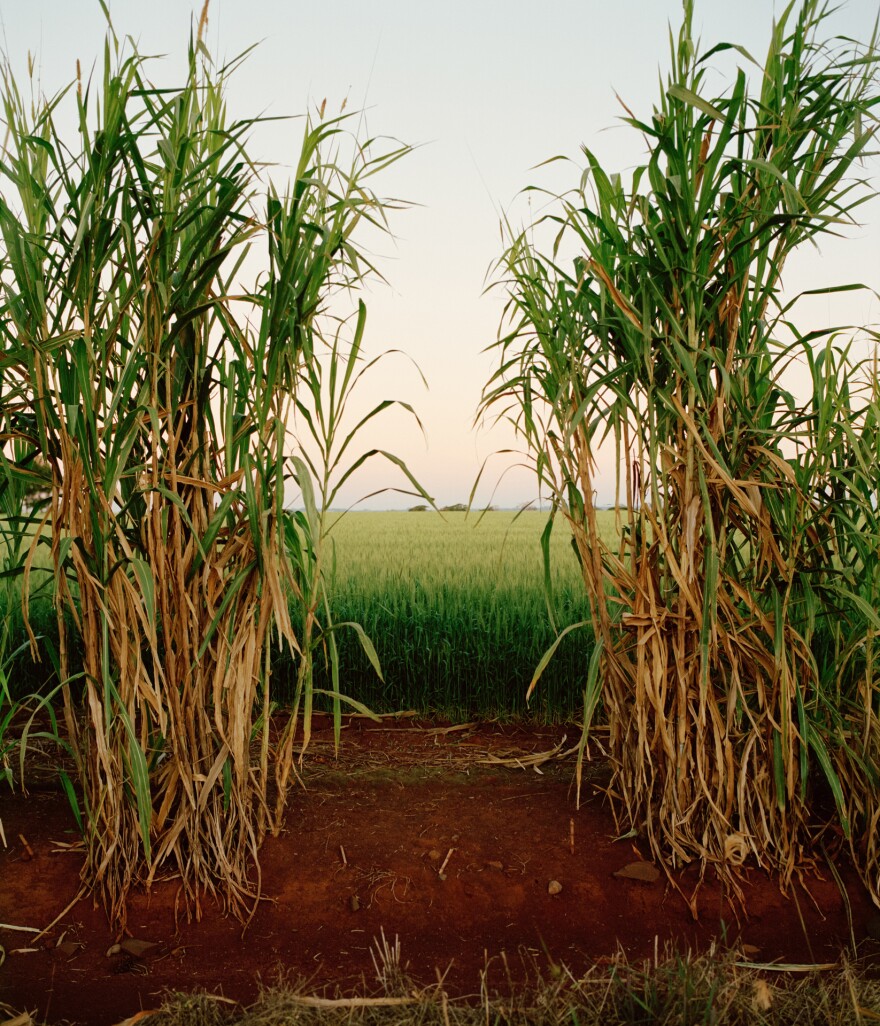Upon first glance, Ricardo Nagaoka's photographs look like they're of Japan. Asian faces are surrounded by hallmarks of Japanese culture: ikebana, origami, baseball and kimonos. It's subverting this expectation that delights him the most.
"We read these visual cues and we instinctively say, 'Oh, this is probably in Japan,'" Nagaoka says. "I like making images that challenge what we initially believe."


He explores this idea with the landscape. Red dust covers walls and cars. Children play and adults work in the iron-rich fields. The distinctive burgundy earth of Paraguay, Nagaoka's country of birth, becomes a character of its own. It's where the title of his zine gets its name, Tierra Colorada.
"Photographing Japanese people — many of who are like me, on Paraguayan soil — has always been this pursuit of challenging our natural instinct to categorize and frame people on simple terms," he explained.


Nagaoka's grandparents moved to Paraguay as part of a second wave of Japanese immigrants who came to South America after World War II. Nagaoka and his parents grew up in Paraguay until he was 12, when they too became immigrants. His family left for Canada, and he later attended college at the Rhode Island School of Design. He has since lived in the United States, where issues about identity remain prevalent in the national discourse.


"I'm Japanese by blood, but ethnically more Latin American," Nagaoka says. "Where do I stand in conversations about cultural identity?"
Growing up as a sansei, a Japanese term for the grandchildren of immigrants, led him to question the importance of his cultural identity as new generations come and old ones go. He wonders: How much Japanese heritage does one hold on to and how much does one assimilate? Many of his photographs focus on children, the fourth generation that will next grapple with this syncretic culture too.






Nagaoka says Paraguay feels like a distant home. Most of his family still lives there, but he couldn't visit for about four years because of visa restrictions. When he returned for a month last year, he made these images while visiting the small towns, called colonias, where the Japanese initially settled, recontextualizing Japanese people within the Latin American setting.
"It's interesting how you can break people's preconceptions of what a culture can be or is," Nagaoka says.


Samantha Clark is a writer and photo editor based in Washington. Follow her on Instagram @samanthabrandyclark.
Copyright 2023 NPR. To see more, visit https://www.npr.org.



